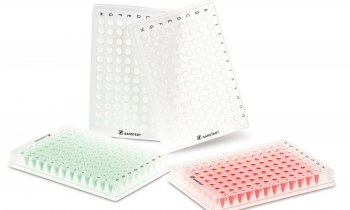News • Clinical value
Kidney disease diagnosis made easier through DNA sequencing
DNA sequencing could soon become part of the routine diagnostic workup for patients with chronic kidney disease, suggests a new study from Columbia University Medical Center. The researchers found that DNA sequencing could identify the genetic cause of the disease and influence treatment for many patients with chronic kidney disease.
An estimated 14 percent of people in the United States have chronic kidney disease, and between 10 percent and 25 percent of these individuals have a family history of kidney problems. Diagnosis typically relies on clinical, rather than genetic, evidence. Even with a kidney biopsy, it can be difficult to identify different subtypes of the disease. As a result, the precise cause of kidney failure often remains unknown.
“Because CKD is usually silent in the early stages, it may not be detected until an individual develops severe kidney problems,” said Ali G. Gharavi, MD, professor of medicine and chief of the Division of Nephrology at Columbia. “At that stage, the patient may be sent to a variety of specialists in order to identify the type and cause of the disease and determine the best treatment. In this study, we hypothesized that genomic testing would help us answer these questions, without sending patients on a time-consuming and often frustrating diagnostic odyssey.”
The researchers performed whole exome sequencing—a technique used to analyze DNA from the protein-coding portion of the genome—in 92 adults with kidney disease. More than half had a family history of kidney problems. Most had been given a clinical diagnosis, but 16 individuals did not know the cause of their disease. The analysis yielded a diagnosis in 22 of the participants, encompassing 13 different genetic disorders syndromes. In 13 individuals, including nine in whom the cause of kidney failure was unknown, the genetic data either explained the original clinical diagnosis or prompted frank reclassification of the patient’s disease.
Our study, though small, demonstrates that whole exome sequencing may offer real clinical value in diagnosing and managing patients with kidney disease.
Dr. Gharavi
“In many cases, these discoveries had an immediate and direct impact on clinical decision-making,” said Dr. Gharavi. “Information from our analysis helped us determine the mode of inheritance, decide which family members should be screened to achieve an earlier diagnosis, and select appropriate related donors for kidney transplantation.”
The researchers also identified three patients who harbored a mutation in a gene not previously associated with kidney failure, thereby defining a new genetic cause of kidney disease. In another patient, the analysis uncovered a BRCA2 mutation, which led to a diagnosis of breast cancer.
“Our study, though small, demonstrates that whole exome sequencing may offer real clinical value in diagnosing and managing patients with kidney disease, especially those with a family history of kidney problems or those with an unknown cause of disease,” said Dr. Gharavi. “Additional studies, in larger and more diverse patient populations, could help better define which categories of patients would benefit most from genomic sequencing in their clinical workup for kidney disease.”
Source: Columbia University Medical Center
05.12.2017











